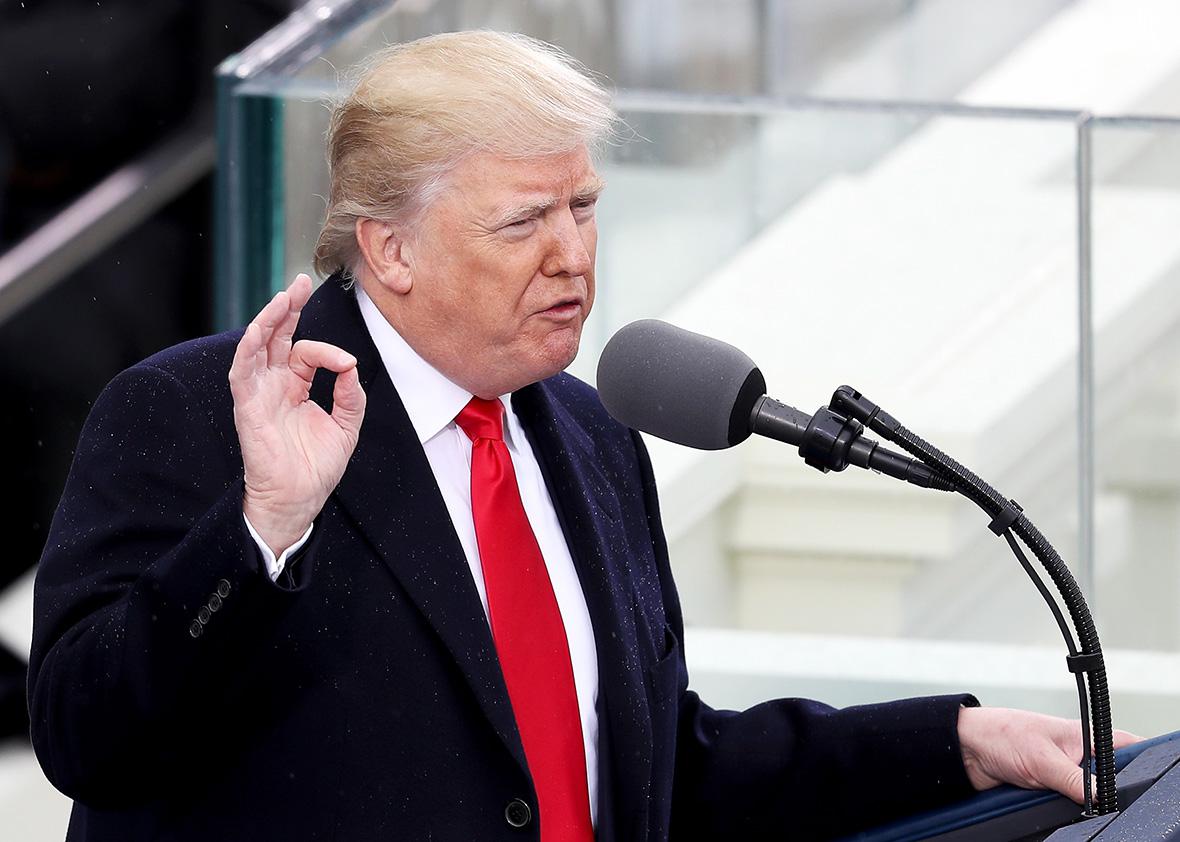The main message from Donald Trump’s inaugural address—the message that leaders around the world are no doubt taking to heart, some of them panicking about—is that he really believes the things he said all those months on the campaign trail. There has been, and likely will be, no moderation, no maturation, as the weight of his office sets in.
In this speech, Trump explicitly endorsed protectionism. He proclaimed his “America First” slogan as official administration policy and added to those words, “Only America First.” He paid lip service to allies old and new but implied conditions for his commitment to their defense. We’ve been protecting other countries’ borders for a long time, he said; now he’ll defend our own.
There was no recognition, and probably beneath it no awareness, that America’s security and prosperity have rested all these years on the liberal international order, which our wiser leaders created in the wake of World War II and which Trump now deprecates.
Quite apart from the ignorance of history and economics that leads him to say, and probably believe, that protectionism will make America stronger and richer, this speech is likely to set off a cascade of consequences around the world. (Give the new president this: He penned a truly historic inaugural address—just not in the way that word is usually meant.)
One can imagine allies in Europe—suddenly aware that the United States may no longer be in their corner—drawing up plans for separate deals on security and trade, among themselves or with some other large power. One can imagine Ukrainians and possibly the Baltic nations—foreseeing the decline of NATO and the crumbling of the European Union—making the best deals they can manage with the looming specter of Moscow. One can imagine the Russian and Chinese presidents, Vladimir Putin and Xi Jinping, shaking their heads in sheer wonder over the bounty that has fallen from the sky (though, in Putin’s case, the wonder may be that the plot he mounted to elect this guy succeeded).
One can also imagine African leaders—those who have aspired to democratic rule—stunned that American aid, even humanitarian aid (including health programs initiated by President George W. Bush), may no longer be forthcoming and that insurgent tyrants may no longer feel hesitant about overthrowing lawful regimes. As for the Middle East, it is hard to say what confluence of Russian, Syrian, and Turkish interests might align with Trump’s inclinations. But Israelis may soon feel the pains of getting what they’d asked for, as their security forces have warned Bibi Netanyahu of the violence in store, and the alienation of newly won Arab allies, if Trump makes good on his promise to move the U.S. Embassy from Tel Aviv to Jerusalem.
There are plenty of people among Trump’s entourage—his incoming secretary of defense, his nominated secretary of state, and some of his appointees from the financial world as well—who understand the grave dangers that he embraced as bright beacons in that speech. The same is true of many Republicans in Congress, who have long championed free trade and strong alliances. Whether they speak up, challenge, persuade, and—if necessary—resist the agenda that Trump has clearly and even boldly laid out, that will determine the course the nation and the world take in the coming months.
